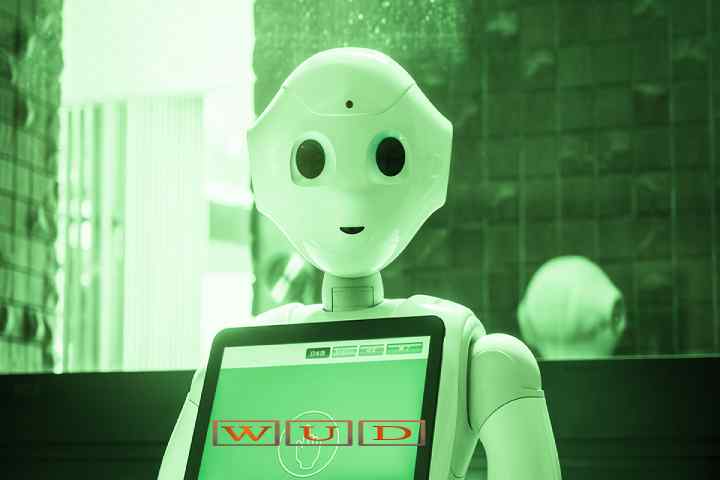Robotics – How Robots Will Help In Education

Talking about robots teaching students in a classroom today may sound like science fiction. But thanks to the enormous technological advances that have occurred in recent years, this may become a reality shortly. A new model called R-Learning has been spreading in Asian countries since 2010, which uses these machines as assistants in schools or English teachers, where robots were used to teach programming, robotics, and other technical subjects. Qualities required in the jobs of the future. Therefore, in today’s post, we are going to talk about this topic. We will show the role of robots in education, their functions, and the benefits they will bring in a few years.
What Will The Classes With Robots Be Like
The current educational framework is changing considerably. And much of the blame is on the digital revolution of the Internet or mobile devices. Gone is the time when you had to memorize each name and date. Especially since many of the new concepts soon become obsolete.
The future education will be based on creativity, personal values, critical thinking, and debate. The teaching will be personalized for each student, who will have to solve their challenges to overcome. How do teacher robots fit into this novel concept of education?
Robots can make teaching a lot more fun at all levels. But of course, especially boys and girls. This is essential but that the students remain motivated and interested. Classes with robots will be more interactive, giving free rein to students’ concerns. The dynamics in which students spend most of the time sitting and listening will end forever.
These artificial teachers will become real eminences in the field of science and engineering. Your data will be stored in the cloud and, therefore, shared with the rest of the robots, analyzing the results and improving their methods is a real revolution in teaching.
Also Read: The Advantages Of Collaborative Robots In The Industry
What Will Be The Roles Of The Robot Teachers Of The Future
Robots can be excellent teachers’ assistants. Your analytical skills, data processing speed, and unerring memory will be invaluable as classroom support. Their appearance will not be intimidating, and on the contrary, they will develop excellent social skills.
They will be great teachers. Today, they provide optimal results in various subjects such as languages, engineering, mathematics, and other similar branches. And they interact with children to teach them to sing or dance. However, it is in the humanities field where its performance is yet to be determined.
Will we be able to discuss philosophy with a teacher robot in the future? Of course, they will have the necessary academic knowledge, learn from their mistakes, and evolve. But perhaps this is not enough to replace a flesh and blood teacher in advanced courses. However, at the primary and medium levels of education, robots will perform practically any function.
For this, machines must emulate human behavior. And even more important that they know how to read the body language of their students. The goal is for your responses to be emotional and as human-like as possible. We know that teacher robots can be infallible in many things, but their capacity for empathy has yet to be developed.
And we also have doubts about its programming. For example, if the robot’s mission is to help students learn more, it may suggest challenging problems for them. Conversely, a robot aiming to pass students could ask too simple questions.
Benefits Of Robots In Education
- Digital resources are increasingly important in teaching, and these machines are authentic databases of maps, videos, graphics, and other indispensable tools for study.
- The robots are being implanted in the first courses so that the youngest of the house are soon familiar with their presence. In this way, they will see technology as something natural. And those who want to dedicate themselves to science in the future will have the best possible motivation in front of them.
- Robots prioritize participatory education. Group dynamics are essential for students to learn as soon as possible to work as a team.
- It also allows the emergence of critical thinking and leadership, stimulating young people to think “out of the box” to approach the proposed challenges creatively.
- Another of the great benefits of robots is that they will reach the most remote areas of our geography, covering essential education services at a low cost. And they will also fill the jobs for which there are too many vacancies. For example, in Japan, it is difficult to find native English teachers. For this reason, robots have been successfully implemented that are meeting this demand.
- Learn while having fun. Improve the teaching process. End frustration in the classroom and boost self-esteem. These are just some of the advantages of robots providing our children in a much nearer future than it seems.
